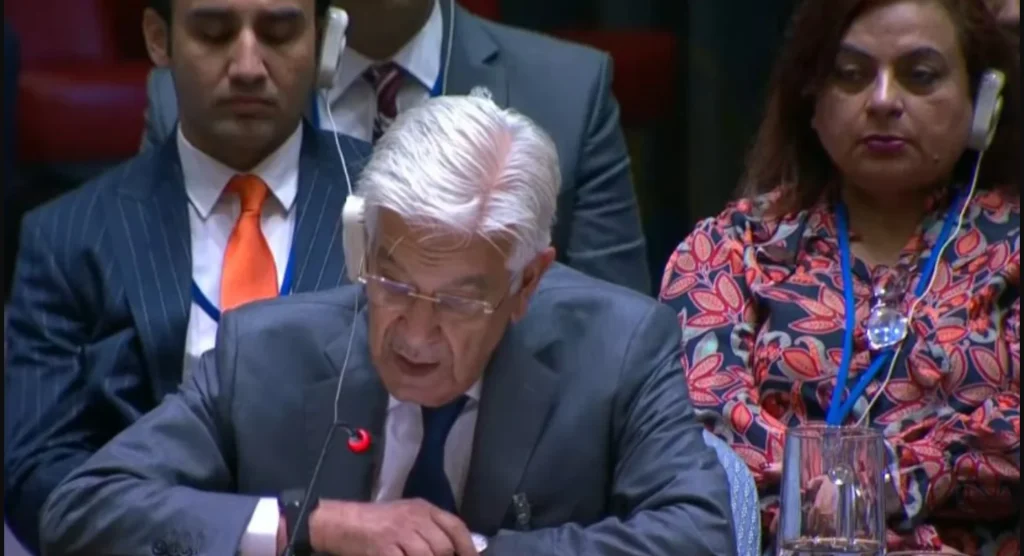Khawaja Asif faces global backlash after Mehdi Hasan’s hard-hitting interview exposed contradictions long shielded by Pakistan’s talk show culture, raising serious questions about media accountability and political credibility.
Khul Ke Bol by Imran Malik
Since yesterday, Khawaja Asif has been trending across Pakistan, and the reason is simple: his much-hyped interview with British-American journalist Mehdi Hasan. For years, Pakistani talk shows have pampered senior politicians like Khawaja Asif. Anchors with personal friendships granted him solo shows, no panelists, no interruptions, and even pre-set questions. In such a controlled environment, Khawaja Asif never faced genuine accountability. But Mehdi Hasan shattered that comfort zone. His piercing questions laid bare Asif’s contradictions, exposing him on an international stage in a way no Pakistani anchor has dared.
This is the tragedy of Pakistan’s media. Politicians dominate the conversation, swallowing tough questions with ease, while anchors act like employees bound by contracts rather than watchdogs serving the public. Whether it is Hamid Mir, Talat Hussain, or Javed Chaudhry, the reality is that million-rupee packages from channel owners buy silence, loyalty, and compromise. Media bosses play both sides of the aisle — government and opposition — while journalism itself is sacrificed at the altar of profit and power.
The humiliation Khawaja Asif suffered in that interview should serve as a wake-up call. Here was Pakistan’s sitting Defense Minister, a senior politician, reduced to evasions and contradictions before a global audience. If one honest, unscripted interview can shake the foundations of his credibility, perhaps it is time for him to rethink his political career.
Adding to his woes is the UNGA controversy. During his speech, seated just behind him was Shama Junejo — a UK-based Pakistani journalist known for courting controversy. Critics quickly recalled her past remarks about Pakistan-Israel relations and her fierce opposition to Imran Khan on Twitter. Outrage spread like wildfire, but Khawaja Asif disowned the matter, saying he did not know who placed her there. In Pakistan’s hybrid system, he may actually be telling the truth — decisions often rest elsewhere, not with the politicians themselves.
The real issue, however, is not Shama Junejo’s seat but the hollowness of Pakistan’s political and journalistic culture. Mehdi Hasan demonstrated what true accountability looks like: tough, unscripted, and fearless. Until our leaders and our media find the courage to face such questioning at home, Pakistan will continue exporting its contradictions abroad — only to be embarrassed on the world stage.



18 Comments
Glad to be one of many visitors on this awe inspiring website : D.
Very nice article and right to the point. I am not sure if this is truly the best place to ask but do you guys have any ideea where to hire some professional writers? Thanks in advance 🙂
Great tremendous issues here. I am very glad to look your post. Thank you so much and i’m looking forward to touch you. Will you please drop me a e-mail?
I’m not that much of a online reader to be honest but your blogs really nice, keep it up! I’ll go ahead and bookmark your website to come back in the future. Cheers
I’ve been absent for a while, but now I remember why I used to love this website. Thank you, I will try and check back more often. How frequently you update your website?
You have mentioned very interesting details ! ps decent web site.
Good perspective
I will immediately snatch your rss feed as I can not in finding your e-mail subscription hyperlink or newsletter service. Do you’ve any? Please allow me know so that I may just subscribe. Thanks.
I’ve been surfing online more than 3 hours today, yet I never found any interesting article like yours. It’s pretty worth enough for me. In my opinion, if all website owners and bloggers made good content as you did, the internet will be much more useful than ever before.
Very interesting information!Perfect just what I was looking for! “Fear not that thy life shall come to an end, but rather fear that it shall never have a beginning.” by John Henry Cardinal Newman.
I am glad to be a visitant of this utter web blog! , regards for this rare info ! .
of course like your website however you have to take a look at the spelling on several of your posts. Several of them are rife with spelling problems and I to find it very troublesome to tell the reality on the other hand I’ll definitely come again again.
I am glad to be one of the visitants on this outstanding site (:, appreciate it for posting.
I was recommended this web site by my cousin. I’m not sure whether this post is written by him as no one else know such detailed about my difficulty. You are amazing! Thanks!
Woah! I’m really digging the template/theme of this website. It’s simple, yet effective. A lot of times it’s tough to get that “perfect balance” between user friendliness and visual appeal. I must say you have done a excellent job with this. Additionally, the blog loads very fast for me on Firefox. Outstanding Blog!
Very well written article. It will be beneficial to anybody who usess it, as well as yours truly :). Keep doing what you are doing – can’r wait to read more posts.
I went over this internet site and I think you have a lot of good information, bookmarked (:.
You made some clear points there. I looked on the internet for the issue and found most people will agree with your blog.